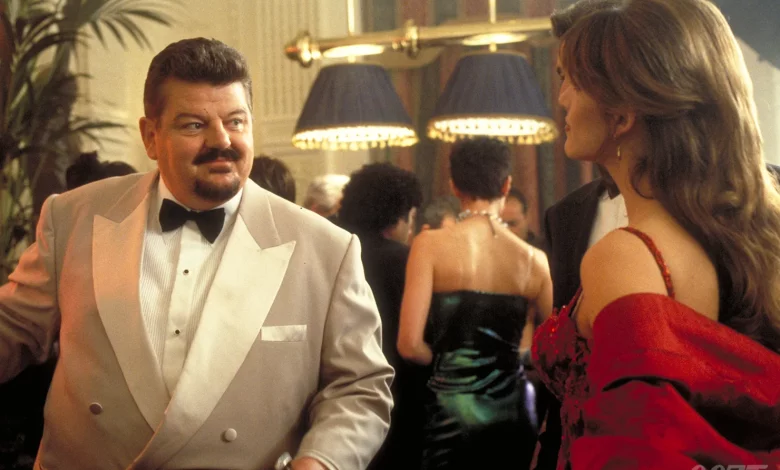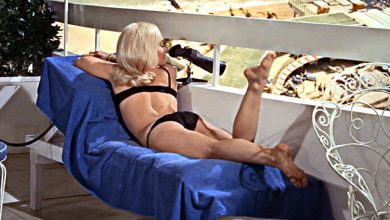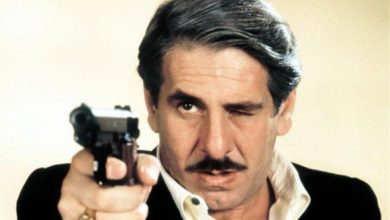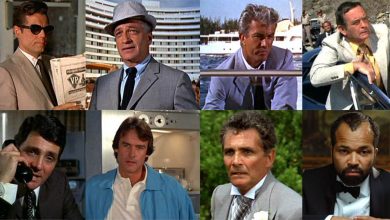Can Valentin Dmitrovich Zukovsky Be Considered as a Russian Oligarch?

The question of whether Valentin Dmitrovich Zukovsky can be considered a Russian oligarch is an intriguing one that delves into the realms of fiction and reality. Zukovsky, a fictional character from the James Bond series, embodies certain characteristics commonly associated with real-life oligarchs. In this article, we will explore the traits of Russian oligarchs, analyze Zukovsky’s portrayal, and discuss the boundaries between fiction and reality in understanding oligarchy.
Valentin Dmitrovich Zukovsky’s depiction as a powerful and wealthy figure in the criminal underworld sparks curiosity about his resemblance to real-life oligarchs. By examining the traits typically observed in Russian oligarchs, such as vast wealth, political influence, control over strategic industries, and international reach, we can draw comparisons and contrasts with Zukovsky’s character. However, it is crucial to approach this analysis with the understanding that Zukovsky exists within the fictional world of James Bond, and any connections to real-life oligarchs should be interpreted with caution.
Key Takeaways
- Valentin Dmitrovich Zukovsky, a fictional character from the James Bond series, shares certain traits associated with Russian oligarchs but should not be directly equated with real-life individuals.
- Russian oligarchs are known for their immense wealth, business and political influence, control over strategic industries, and international connections.
- Zukovsky’s portrayal as an arms dealer and his connections within the criminal underworld provide a glimpse into the fictional depiction of power and wealth associated with the character.
Valentin Dmitrovich Zukovsky: A Russian Oligarch?
To answer the question of whether Valentin Dmitrovich Zukovsky can be considered a Russian oligarch, we first need to understand the concept of an oligarch. An oligarch is typically defined as a member of a small group of individuals who possess significant wealth and political influence, often concentrated in a specific industry or sector. These individuals exert considerable control over economic and political affairs in their respective countries.
While Valentin Dmitrovich Zukovsky is undoubtedly a powerful figure in the criminal underworld depicted in the James Bond series, it is important to note that he is a fictional character. As such, any comparisons to real-life oligarchs should be taken with a grain of salt.
Characteristics of Russian Oligarchs
To determine whether Zukovsky aligns with the characteristics commonly associated with Russian oligarchs, let’s examine some key traits typically observed in this group:
- Vast Wealth: Oligarchs are known for their immense fortunes, often acquired through questionable means. While Zukovsky is portrayed as a wealthy figure, his exact financial status is not explicitly explored in the films. Therefore, it is difficult to ascertain the extent of his wealth in relation to real-life oligarchs.
- Business and Political Influence: Oligarchs wield significant influence over both business and politics. They often have close ties to government officials and can shape policies and decisions to further their interests. While Zukovsky is shown to have connections within the Russian government and intelligence agencies, it is important to remember that these interactions are part of a fictional narrative.
- Control over Strategic Industries: Oligarchs frequently control strategic industries such as energy, telecommunications, or natural resources. They leverage their positions to dominate markets and amass further wealth and power. Zukovsky, as an arms dealer, operates within a specific niche of the criminal underworld rather than holding sway over a broader industry.
- International Reach: Russian oligarchs often extend their influence beyond national borders, establishing connections and investments on a global scale. While Zukovsky has dealings with international criminal networks, his activities primarily revolve around arms smuggling and organized crime rather than legitimate international business ventures.
FAQ
1. Can Valentin Dmitrovich Zukovsky be considered a real-life Russian oligarch?
Valentin Dmitrovich Zukovsky is a fictional character from the James Bond series and does not exist in real life. Therefore, he cannot be considered a real-life Russian oligarch. While the character may possess certain traits associated with oligarchs, such as wealth and influence, it is important to remember that the portrayal is purely fictional and intended for entertainment purposes.
2. How does Valentin Dmitrovich Zukovsky acquire his wealth in the James Bond series?
In the James Bond series, Valentin Dmitrovich Zukovsky is depicted as an arms dealer and a powerful figure in the criminal underworld. He amasses his wealth through illicit arms trafficking, smuggling, and other illegal activities. Zukovsky’s connections and influence within the criminal network allow him to accumulate vast sums of money, which contribute to his luxurious lifestyle and status.
3. Does Valentin Dmitrovich Zukovsky have political connections?
Within the context of the James Bond series, Valentin Dmitrovich Zukovsky is shown to have connections within the Russian government and intelligence agencies. These ties enable him to operate his criminal enterprises with relative impunity and access valuable information. However, it is important to emphasize that these interactions occur within the fictional narrative of the movies and do not reflect real-life political dynamics.
4. Is Valentin Dmitrovich Zukovsky involved in legitimate businesses?
Valentin Dmitrovich Zukovsky primarily operates in the realm of organized crime, particularly arms dealing, and is not portrayed as being involved in legitimate businesses. His wealth and influence stem from his involvement in illicit activities rather than legal enterprises. In the James Bond series, Zukovsky’s criminal network and operations are a central part of his character’s storyline.
5. How does Valentin Dmitrovich Zukovsky compare to real-life Russian oligarchs?
Valentin Dmitrovich Zukovsky, as a fictional character, cannot be directly compared to real-life Russian oligarchs. While there may be certain similarities in terms of wealth, influence, and connections, it is essential to recognize the distinction between fiction and reality. Real-life oligarchs operate within complex political and economic environments, exerting significant control over strategic industries and wielding substantial power in their respective countries.
6. Does Valentin Dmitrovich Zukovsky have international connections?
In the James Bond series, Valentin Dmitrovich Zukovsky is depicted as having connections with international criminal networks. His involvement in arms dealing gives him a global reach within the criminal underworld. However, it is important to note that these connections are fictional and do not reflect the activities or networks of real-life individuals or organizations.
7. What are the key characteristics of real-life Russian oligarchs?
Real-life Russian oligarchs are characterized by their immense wealth, often acquired through controversial means. They exert significant influence over both business and politics, with close ties to government officials and the ability to shape policies and decisions. Oligarchs often control strategic industries and have an international reach, extending their influence beyond national borders through investments and connections.
8. Are there any notable differences between Valentin Dmitrovich Zukovsky and real-life Russian oligarchs?
Yes, there are notable differences between Valentin Dmitrovich Zukovsky and real-life Russian oligarchs. Zukovsky’s portrayal in the James Bond series focuses primarily on his criminal activities and underworld connections, whereas real-life oligarchs often operate within legitimate business sectors as well. Furthermore, the influence and power wielded by real-life oligarchs extend far beyond the scope of Zukovsky’s fictional character.
9. What impact do Russian oligarchs have on the country’s economy?
Russian oligarchs have a significant impact on the country’s economy due to their control over strategic industries and vast wealth. Their influence can shape economic policies and investment decisions, and their actions often have far-reaching consequences for the overall economic landscape. However, it is important to note that the effects of oligarchic influence are complex and can vary depending on the specific circumstances and political climate.
10. Can Valentin Dmitrovich Zukovsky’s character be seen as a critique of Russian oligarchy?
Valentin Dmitrovich Zukovsky’s character in the James Bond series can be interpreted as a fictional portrayal of certain elements associated with Russian oligarchy. However, it is important to approach such interpretations with caution, as the primary purpose of the character is to entertain rather than provide a direct critique of real-life oligarchs. Any perceived critique within the narrative of the films should be understood within the context of the fictional universe in which the character exists.
Conclusion
Valentin Dmitrovich Zukovsky serves as a captivating character within the James Bond series, embodying certain characteristics often attributed to Russian oligarchs. However, it is important to maintain a clear distinction between the fictional realm and real-life dynamics. While Zukovsky possesses traits such as wealth, influence, and connections within the Russian government, his portrayal should be appreciated within the context of entertainment and not as a direct analysis of real-life oligarchy.
Exploring the question of whether Zukovsky can be considered a Russian oligarch opens up discussions about power, influence, and the boundaries between fiction and reality. It reminds us to critically analyze the portrayal of fictional characters, understanding their limitations in providing insights into complex socio-political phenomena. By appreciating the nuances of fiction and reality, we can engage in a thoughtful examination of the concept of oligarchy and its representation in popular culture.









